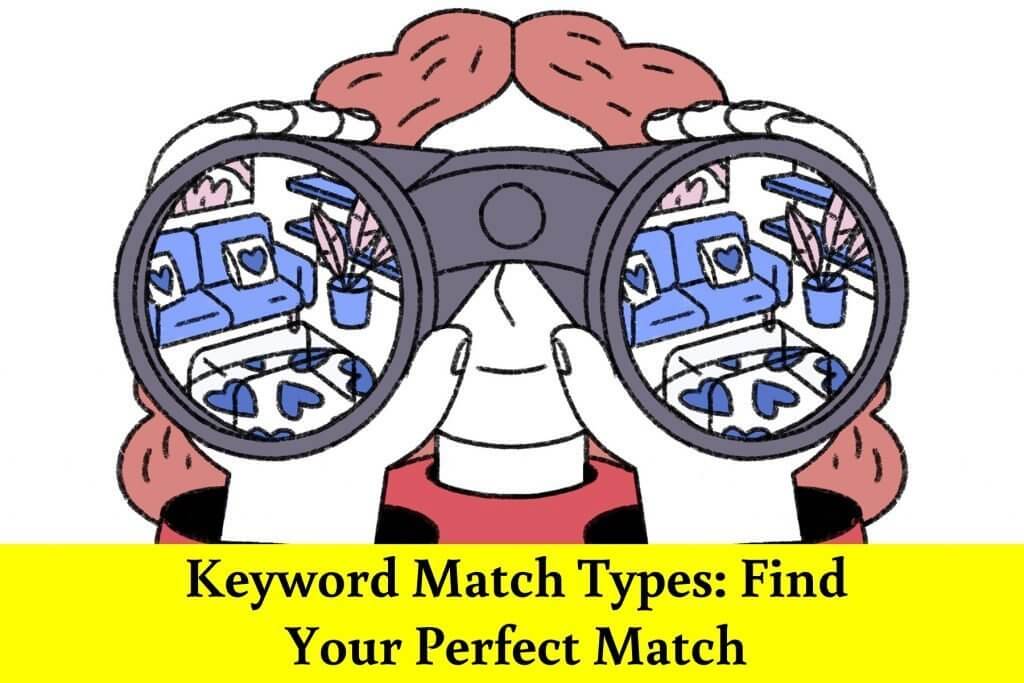Keyword Match Types: Find Your Perfect Match

When bidding on a keyword in your PPC campaigns, you need to choose a keyword match type, which tells Google how aggressively or restrictively you want it to match your advertisements to keyword searches. There are four different keyword match types to choose from when advertising with Google Ads.
Today we will talk about four keyword match types available in Google advertising and how they differ, as well as why keyword match types are important to the success of your PPC ad campaigns.
What Are the Keyword Match Types?
When creating a text ad in your PPC campaign, you can select broad match, modified broad match, phrase match, or exact match for your keyword match type. Each match type in your Google Ads or AdWords account has its advantages and disadvantages.
Broad Match Type
Broad match is the default match type and the one that reaches the widest audience. When using broad match, your ad is eligible to appear whenever a user’s search query includes any word in your key phrase, in any order. For example, if you use broad match on “living room poufs New Jersey,” your ad might be displayed if a user types “living room furniture New Jersey,” “poufs,” or “New Jersey furniture”, “are “Google may also match your ad to queries using synonyms – for example, your ad might display when someone searches for “expensive vehicles,” which doesn’t include any of the terms in your keyword.
Because broad matched ads are set up to reach the widest possible audience, searchers might see and click your ad when querying irrelevant topics, and these costs can add up surprisingly fast. Again, since broad match is the default match type, it’s important to be very careful. Broad match keywords are a great way to drive lots of clicks, but advertisers need to keep a close eye on their search query reports to ensure that they’re not paying for irrelevant traffic that doesn’t convert.
Modified Broad Match
Modified broad match can be viewed as a sort of middle ground between broad match and the more restrictive match types below. It allows you to reach a similarly wide audience, but better control who sees your ad by “locking” individual words in a key phrase using the “+” parameter. When you add the plus sign in front of a term in your keyword, you’re telling Google that the search query must include that term.
For instance, let’s say you enabled modified broad match in AdWords for the keyword “fashion jewelry.” If you append the “+” parameter to the word “fashion,” Google can only match your ads to queries that include the word fashion. If you append it to the word “jewelry,” search queries must include that word before your ad can enter the auction.
Phrase Match Type
Phrase match offers some of the versatility of broad match, but like modified broad match, introduces a higher level of control. Your ad will only appear when a user queries your key phrase using your keywords in the exact order you enter them, but there might be other words either before or after that phrase.
For example, if your key phrase was “food supplements,” your ad could appear when a user searched for “food supplements in Los Angeles,” “discount food supplements,” or “food supplements for weight loss” but not for searches like “supplements for effective weight loss,” “dietary supplements,” or “the best supplements.” Since the query can contain text before or after your keywords, there is some flexibility, but you are leaving a lot of potential traffic on the table.
Exact Match Type
Exact match is the most specific and restrictive of the keyword match types. In previous years, with this match type, users would only see your ad when they typed your exact keyword phrase by itself. For example, if your keyword phrase was “women’s clothes,” your ad would only be eligible to show up when a user searched for “women’s clothes” (those words in that exact order) and not for “women’s dresses,” “women’s summer clothes” or “women’s apparel.”
However, Google has recently made changes to the exact match type so that even when using exact match keywords, your ads might match to searches containing synonyms, plurals, or other variations on your keyword. Learn more about these changes in this article.
Final thoughts
By clearly understanding the types of keyword matches in AdWords and how they work, you’ll save a lot of money — because if you’ve read this carefully, you’ll know that “broad match” can quickly eat through your budget, just as it would if you advertised in your region’s newspaper. Also, as you gain clarity, you’ll have more confidence to test match types to see what works for you.